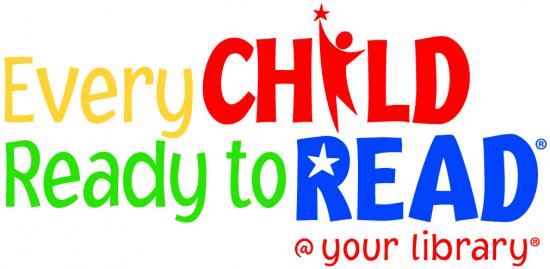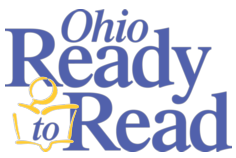
Every Child Ready to Read® @ your library® (ECRR) is a parent/caregiver education initiative, directed toward public library staff, intended to promote early literacy. Early literacy is what children learn and know about reading and writing before they can read or write. Early literacy begins with the primary adults in a child's life.
ECRR empowers public librarians and library specialists to take a central role in supporting early literacy through teaching parents and other caregivers how to support the early literacy development of their children.
ECRR is a project of the Association for Library Service to Children and the Public Library Association, divisions of the American Library Association. It was first introduced in 2004 and was extensively revised in 2011. "ECRR1" refers to the 2004 edition of the ECRR toolkit and materials. "ECRR2" refers to the 2011 edition.
ECRR1 was organized around six primary early literacy skills which research had identified as essential for the later development of reading, writing, and language skills. ECRR2 shifted attention, from naming and describing the individual skills, to promoting five simple, everyday practices that help children develop all the foundational early literacy skills.
The Five Practices of ECRR2
Talking - because children learn by listening to their parents and others talk. As children hear spoken language, they learn new words and what they mean. They learn about the world around them and important general knowledge. This will help children understand the meaning of what they read. Talking with children helps them learn oral language, which is critical to literacy. The experience of self-expression also stimulates brain development, which underlies all learning.
Singing - which also includes rhyming - increases children’s awareness of and sensitivity to the sounds in words. This helps prepare children to decode print (written language). Songs are a wonderful way to learn about language. Singing also slows down language so children can hear the different sounds that make up words.
Reading together - also called shared reading - is the single most important way to help children get ready to read and become proficient readers. Reading together increases vocabulary and general knowledge. It helps children learn how print looks and how books work. Shared reading also helps children develop an interest in reading. Children who enjoy being read to are more likely to want to learn to read themselves.
Writing and reading go together. Both represent spoken language and communicate information. Writing helps children learn that letters and words stand for sounds and that print has meaning. Children can learn pre-reading skills through writing activities.
Playing is one of the primary ways young children learn about the world. General knowledge is an important literacy skill that helps children understand books and stories once they begin to read. Children learn a lot about language through play. Play helps children think symbolically, so they understand that spoken and written words can stand for real objects and experiences. Play also helps children express themselves and put thoughts into words.
The Six Skills of ECRR1
Print Motivation: interest in and enjoyment of books and reading. Children with print motivation enjoy being read to, plays with books, pretend to write, and like visiting the library. Children who perceive reading as a pleasurable activity and books as interesting will be motivated to learn to read.
Phonological Awareness: the ability to hear and manipulate the smaller sounds in words (rhyming, syllables, starting sounds). Children with phonological awareness skills recognize that words are made up of a number of sounds. They can hear and create rhymes, say words with sounds or "chunks" left out, and put sounds together to make a word. Children who can hear and understand how words are made up of smaller sounds will be more successful at "sounding out" written words when they start to read.
Vocabulary: knowing the names of things, including objects, animals, and other concrete things as well as abstract things such as feelings, concepts, and ideas. A strong vocabulary helps children decode words and understand what they read. Children with bigger vocabularies have an easier time when they start to read, because it's easier for them to make sense of the words they are sounding out. Children who understand what they're reading are more motivated to keep reading.
Narrative Skills: the ability to describe things and events and tell stories. Children with good narrative skills can use expressive language effectively. They can recount events, describe things, and tell and retell stories. They can explain their feelings and desires, which can lead to fewer tantrums and help make parenting easier. Narrative skills are important to reading development because they help children comprehend and explain the meaning of what they’re reading.
Print Awareness: the ability to notice print, to know that print has meaning, to understand how to handle a book, and to know how to follow print in a book. Children have to be aware of words before they can read them. They need to know how books work - which is the front and back cover, what's upside down and right side up, which page to start on and which direction to read (from left to right in English).
Letter Knowledge: knowing that letters are different from each other and that they have different names and sounds. As children gain letter knowledge, they learn that the same letter can look different (capital and lowercase), that each letter has a name, and each letter is related to sounds.
Want to learn a lot more about the Six Skills and Five Practices? Request an Early Literacy 101 workshop for your library staff and neighboring libraries! ORTR trainers can bring this one-day workshop to Ohio public libraries for FREE for an audience of 20-35 attendees.
For more information on ECRR, or to purchase an ECRR toolkit for your library, visit the Every Child Ready to Read website.
